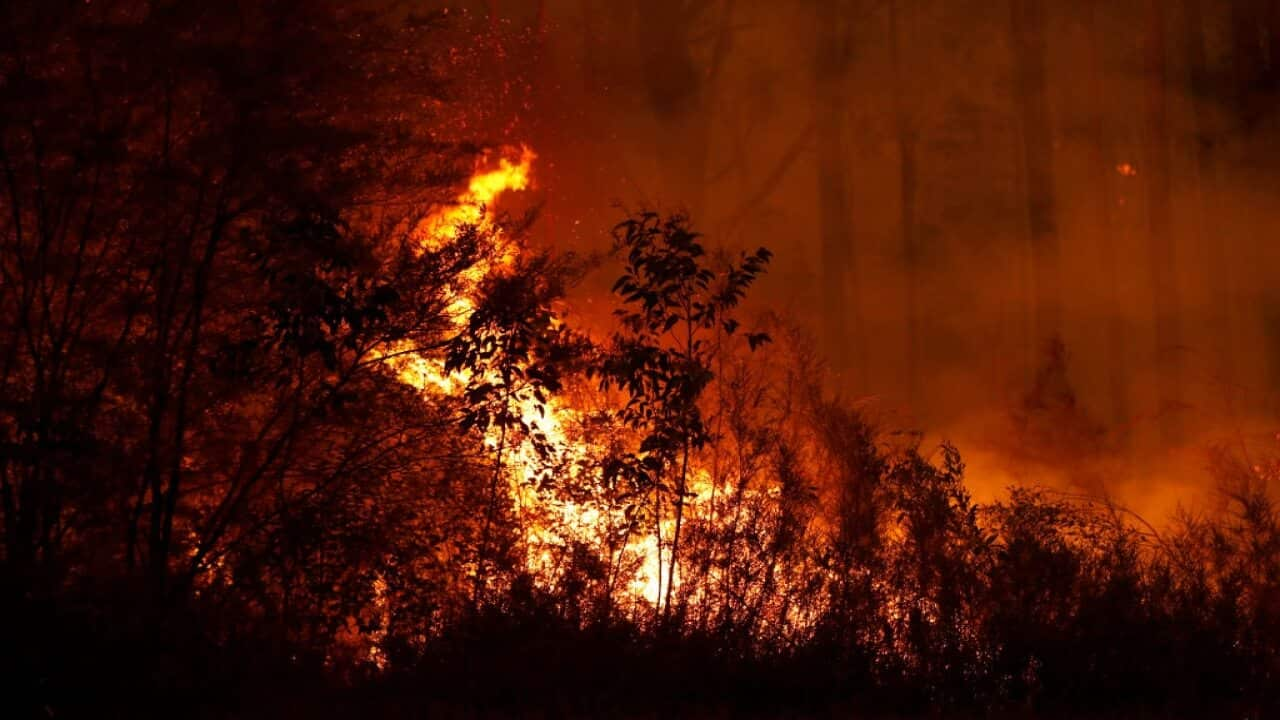The final report of the inquiry into the Black Summer bushfires was tabled late last week, with experts saying they were disappointed that a generally increased national focus on Indigenous land management and cultural burning practices failed to be reflected in the recommendations.
The Indigenous Knowledge Institute’s Director of Research Capacity said the had “missed a golden opportunity” to embed Indigenous approaches to fire management.
“[There is] no push to actually achieve anything in this space other than to explore potentialities and to engage with community,” Associate Professor and Wiradjuri man Michael Fletcher told NITV News.
“There's a real missed opportunity to provide a national framework that allows Indigenous communities to engage in a consistent manner across the country.”
The inquiry was called in the wake of the devastating 2019-20 summer bushfire season, but looked at Australia's readiness for and response to all natural disasters.
In tabling its final report on Friday last week, the inquiry made 80 recommendations for the coordination of all levels of government during emergencies, warning systems for the public, firefighting resources, climate data, the role of the Australian Defence Force and how charities and other groups can best respond in the wake of disasters.
Two of the recommendations related to Indigenous fire knowledge and management.
- Indigenous land and fire management: natural disaster resilience recommends state, territory and local governments “should engage further with traditional owners to explore the relationships or relationship between Indigenous fire and land management, and natural disaster resilience.”
- Indigenous land and fire management: public land management recommends state, territory local governments “should explore further options to leverage Indigenous land fire management insights in the development planning and execution of public land management activities.”
Prof Fletcher said “engage and explore” just isn’t good enough anymore.
“We need to manage a country with fire from now on, it can't be a political football gets kicked around and changed. Something needs to be set in stone” he said.
“Hopefully, ‘engage and explore’ is enough to get national governments to do the right thing. But it's going to require a lot more work and advocacy and the right people on the ground and in government to make it work.”
Prof Fletcher said Australia needs to wake up and understand that we're living in a place that needs fire all the time.
“A lot of the language around the rest of the report is about battling and fighting fire and containing fire - that's not going to win on a continent like this. We need to look to working with fire and embracing fire, and the people know how to do that are the Traditional Owners,” he said.
That response was echoed by Professor Claire Smith, Head of the Department of Archaeology at Flinders University and a former member of Australia’s World Heritage Reference Group.
Prof Smith said we need to rethink our love of a green landscape, and embrace a landscape that is blackened by regular burning.
"We need to prioritise preventing future fires by learning from Indigenous science and traditional knowledge,” said Prof Smith.
“Aboriginal people have been in Australia for at least 65,000 years. There is no archaeological evidence of massive bushfires. This is because they managed their landscapes through regular, low-intensity burning that occurs in a mosaic pattern, like a chessboard. This gave even small animals a chance to move to safety.”
Several other experts have spoken out about the report, including Professor Mike Clarke who is “very disappointed” there appears to be just one recommendation relating to the threats posed to wildlife.
The Head of the School of Life Sciences and Professor of Zoology at La Trobe University, Prof Clarke has a long-standing interest in the impact of fire upon fauna.
“I would have really liked to have seen some additional recommendations related to the recovery and protection of our wildlife, not just the documenting of its demise,” said Prof Clarke.
“I don’t think international observers would think this issue has been given the serious consideration it needs, given we are custodians of such extraordinary and unique plants and animals."










